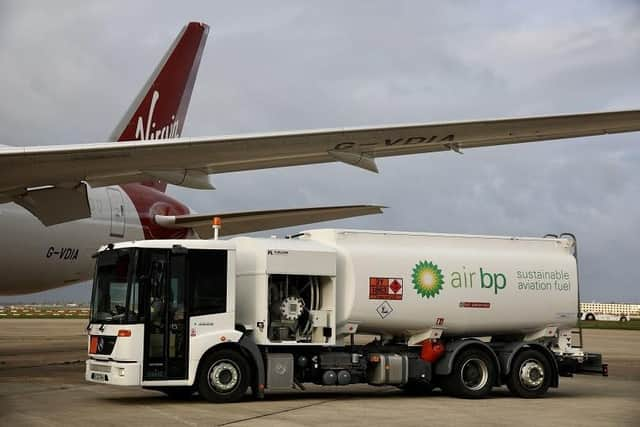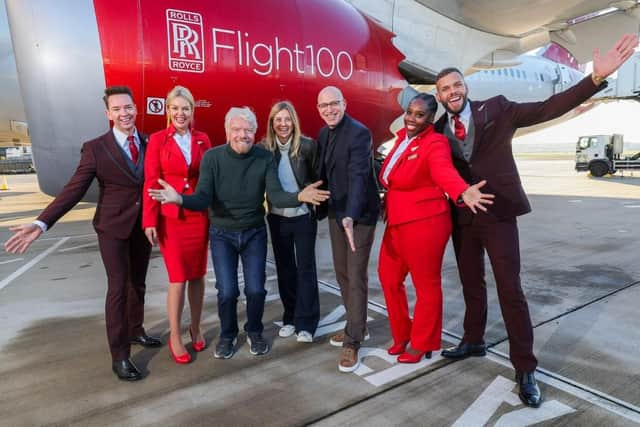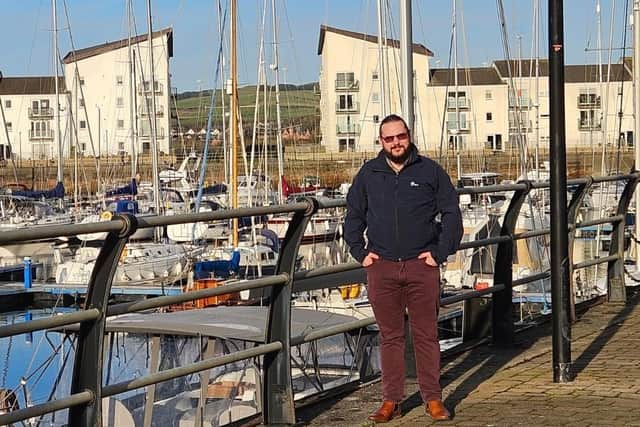Sleepwalking to climate change Armageddon unless we drive and fly less – Alastair Dalton
I'm worried we're sleepwalking towards a climate Armageddon. For all the ambitious governmental targets to cut emissions and reach “net zero”, I don’t think we’re doing enough as individuals.
I’m principally thinking about transport, an area we can all influence by choosing how we get around. This is because land transport is one of the biggest sources of the UK’s greenhouse emissions, accounting for 22 per cent of the total, with cars making up 13 per cent alone.
Advertisement
Hide AdAdvertisement
Hide AdTraffic levels in Scotland are virtually unchanged on a decade ago, with the latest official statistics showing 43 billion vehicle kilometres in 2021, a similar number to 2011. Although the figure is still down on pre-Covid levels of 48 billion, it goes to show the mountain the Scottish Government has to climb to meet its target of reducing the total by 20 per cent in as little more than six years.


On the railways, ministers’ target is to remove the final ScotRail diesel train by 2035, but an order for the first of three new fleets has already been delayed with no word as to when it will be placed.
Regardless of the precise link between emissions and climate change, the weather is only getting more extreme, more recently with October 6-7 likely to have been Scotland’s wettest-ever two-day period since records began more then 30 years ago, and October the country’s wettest ever month.
But I was struck by how far we have to go to mitigate this by a presentation at a University of Strathclyde conference last week. We may think electric cars, hydrogen-fuelled aircraft and alternatively-powered ships may be the answer, but one expert reckoned we aren’t going nearly fast enough.
Dr Tom Beard, who leads on clean maritime fuels for consultants BMT, told the PNDC (Power Networks Demonstration Centre) event of the need to rapidly ramp up green energy, even if it meant a temporary further increase in emissions.


He said: “Having an initial [emissions] spike where we go hell for leather for two or three years to make wind turbines, solar, the whole lot, means then we’d have an even sharper decrease – because that’s what we need. We’re trying to build [greener] vessels, aeroplanes and cars, yet we are still burning fossil fuels.”
Dr Beard said of electric cars in London: “All they’ve done is taken the emissions from the fuel pipe and chucked it into the gas power station – you’ve just moved the point of emissions.”
Don’t think flying will get greener anytime soon either. On Tuesday, Virgin Atlantic operated the first transatlantic flight using 100 per cent “sustainable aviation fuel” (Saf), which normally has to be blended 50/50 with traditional kerosene. It described the fuel as the “only mid-term viable solution for decarbonising long-haul aviation” and said alternatives like electric and hydrogen “remain decades away”.
Advertisement
Hide AdAdvertisement
Hide Ad

But scientific academy The Royal Society has said half of the UK’s farmland would be required to produce enough Saf from crops to replace jet fuel to meet demand. We need to fly less, drive less, and switch more of our journeys to walking and cycling for shorter journeys, and rail and coach to go further afield. But when are we going to start doing that?
Comments
Want to join the conversation? Please or to comment on this article.